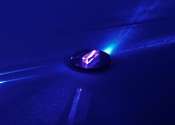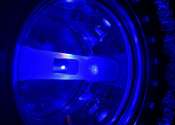Physicists' laser experiment excites atom's nucleus, may enable new type of atomic clock
For nearly 50 years, physicists have dreamed of the secrets they could unlock by raising the energy state of an atom's nucleus using a laser. The achievement would allow today's atomic clocks to be replaced with a nuclear ...









